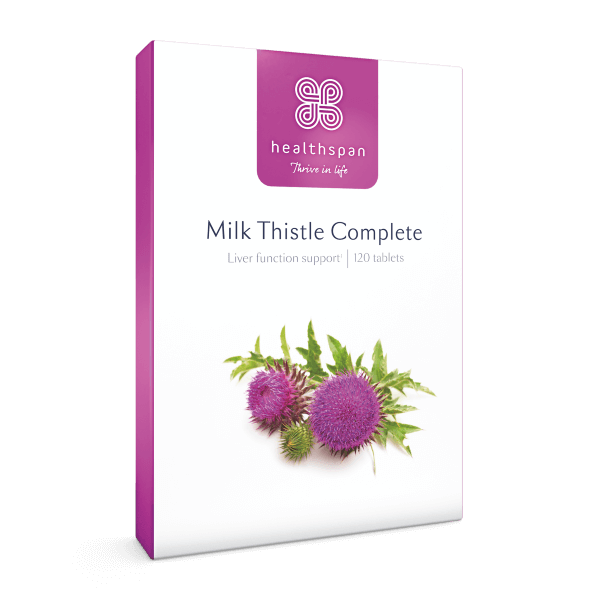The menopause will affect every woman at one time or another. But how can we relieve symptoms the natural way?
According to a recent study of 1,000 women aged between 40-55, 84 per cent of women have suffered from the many symptoms associated with the peri-menopause or the menopause.
The menopause describes a woman's natural loss of fertility in later life when her monthly periods come to an end and her ovaries lose their reproductive function. The average woman in the UK goes through menopause at the age of 51 but the symptoms can begin even earlier in what's known as the 'peri-menopause.'
The symptoms associated with the peri-menopause and the menopause include:
- Hot flushes and night sweats
- Anxiety and low mood
- Poor memory and concentration
- Lower self-esteem
- Headaches and migraine
- Disrupted sleep
- Irritability and mood swings
- Tiredness
- Dry, itchy skin
- Low sex drive
- Aching joints and muscles
- Urinary problems (cystitis, incontinence)
What is milk thistle?
Not to be mistaken for milk of magnesia, milk thistle has long been used as a herbal remedy. Milk thistle's beneficial properties derive from the seed, which contains high levels of the compound 'silymarin', and is believed to have specific anti-oxidant properties, local anti-inflammatory activity and toxin-blocking properties.
How does milk thistle help the menopause?
"The active ingredient in milk thistle, silymarin, can help to support hormonal balance through its protective action on the liver," says Catherine Jeans, nutritional therapist and co-director of The Orange Grove Clinic, which specialises in women's health.
"Any excess hormones we have in our body are detoxified and excreted via the liver and gut, which makes milk thistle an excellent herb to help support hormonal balance," she adds.
One of the most common symptoms of the menopause is low mood and self-esteem and irritability, thanks to hormonal fluctuations. Typically, everyday stresses can seem even more overwhelming than before the start of menopause, but milk thistle is thought to help reduce feelings of anxiety and depression.
If you choose to go down the HRT (hormone replacement therapy) route, you may find that your medication slows down bile production, causing constipation. Milk thistle can assist the liver with bile production.
It is important to talk to your GP before taking milk thistle tablets, as THR products and some non-THR supplements can interfere with medication.

Milk Thistle Complete
Milk thistle extract with B vitamins, calcium and choline to support your digestive system and liver function
- 50mg milk thistle extract equivalent to 1,200mg milk thistle seeds
- With added calcium for the normal function of digestive enzymes and choline for liver function
- Added B vitamins reduce fatigue
Which other supplements can help with the menopause?
A number of other herbs and supplements can help to improve the symptoms of the menopause, including:
Black cohosh
Black cohosh falls under the Traditional Herbal Registration scheme in the UK and is classed as a herbal medicine used to help relieve female hormone imbalances, such as menopausal hot flushes, night sweats, mood swings, irritability and restlessness.
Black cohosh's dried roots contain a number of oestrogen-like plant hormones known as phytoestrogens, which mimic the effect of oestrogen within the body, helping to regulate hormones and combat other symptoms of the menopause.
Studies have found that black cohosh extracts have significant effects on menopausal symptoms, reducing them by more than a quarter (26 per cent) compared to placebo.
Other supplements that could help to support the body during menopause include sage and soy isoflavones.











